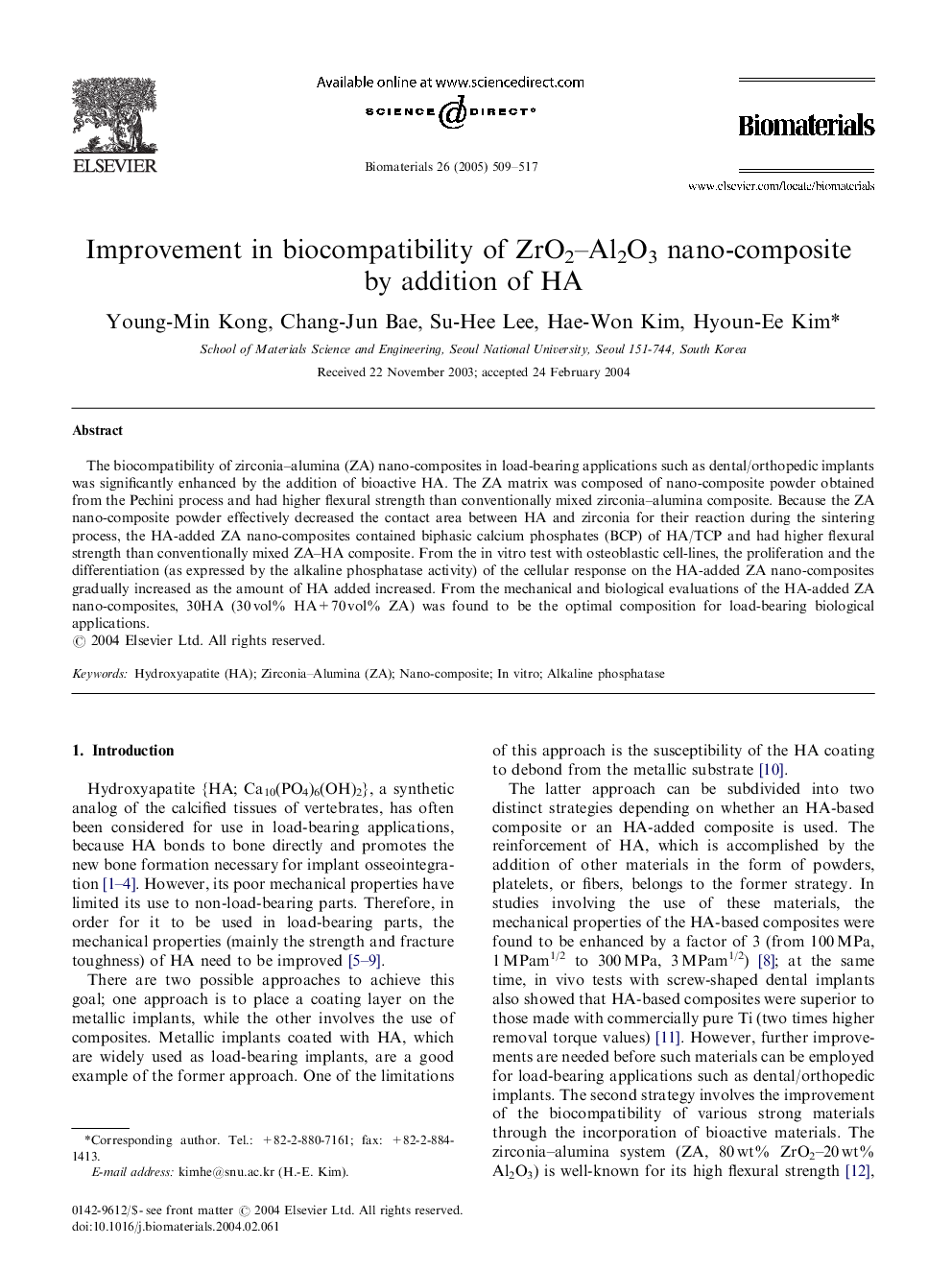| Article ID | Journal | Published Year | Pages | File Type |
|---|---|---|---|---|
| 10230514 | Biomaterials | 2005 | 9 Pages |
Abstract
The biocompatibility of zirconia-alumina (ZA) nano-composites in load-bearing applications such as dental/orthopedic implants was significantly enhanced by the addition of bioactive HA. The ZA matrix was composed of nano-composite powder obtained from the Pechini process and had higher flexural strength than conventionally mixed zirconia-alumina composite. Because the ZA nano-composite powder effectively decreased the contact area between HA and zirconia for their reaction during the sintering process, the HA-added ZA nano-composites contained biphasic calcium phosphates (BCP) of HA/TCP and had higher flexural strength than conventionally mixed ZA-HA composite. From the in vitro test with osteoblastic cell-lines, the proliferation and the differentiation (as expressed by the alkaline phosphatase activity) of the cellular response on the HA-added ZA nano-composites gradually increased as the amount of HA added increased. From the mechanical and biological evaluations of the HA-added ZA nano-composites, 30HA (30Â vol% HA+70Â vol% ZA) was found to be the optimal composition for load-bearing biological applications.
Related Topics
Physical Sciences and Engineering
Chemical Engineering
Bioengineering
Authors
Young-Min Kong, Chang-Jun Bae, Su-Hee Lee, Hae-Won Kim, Hyoun-Ee Kim,
